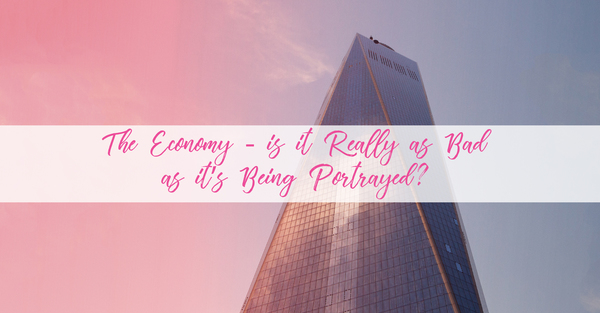
Drop off your CV
We serve the global HR community through our offices located in Delhi, Hong Kong, London, New York, São Paulo and Singapore and have placed HR leaders in over 30 countries.
Summer holidays are always a great time to re-charge the batteries and they also give me a c...

Summer holidays are always a great time to re-charge the batteries and they also give me a chance to catch up on the numerous copies of the Economist that I have failed to read over the last 6 months. This is also where my iPad comes in handy as I’m able to read the economist backlog on one device. Taking this time is crucial for me, it lets me think a little more clearly and also allows me to get a sense check on what is happening around the world.
One article that really stood out was in the edition dated 23rd May 2019, “Working It”. There’s a great statistic in this piece, highlighting that across the OECD 43 million jobs have been added over the past 5 years, with the employment rates in Britain, Canada, Germany, Australia and 22 other OECD countries being at their highest ever. Yet, in our latest global HR survey, the results of which are out now, we asked everyone how they felt about the Economy and, despite an amazing statistic like the one above, just 26% of people said they felt positive or very positive about the economy, down from 41% in 2018.
It got me thinking on why we are feeling like this, and what could have caused such a big decrease in sentiment over the past year. I don’t have all of the answers but it does seem to me that politics and opinion seem to be taking over from reality. We have Brexit in the UK and across Europe, Trump and an upcoming election in the US, Bolsarono in Brazil, a trade war in China and a fight for democracy in Hong Kong. Wherever we turn there seems to be something political happening right now, events that take up huge amounts of newspaper columns.
Combined with the views and thoughts you see on social media, the world seems to be a place where critical opinion and negativity seem to make up most of our daily news. What does appear to be clear is that we seem to be eager to ignore the positive facts and figures and focus on opinion or political hyperbole instead. Therefore we are exceptionally quick to forget that female employment is on the rise as a result of reforms in OECD countries, higher education in OECD countries has risen from 22% in 2000 to nearly 40% currently, meaning more and more people are likely to find work, and that overall there are many positives that exist in the world today that don’t receive the publicity that they deserve.
The world we live in is a complex place that requires thought and focus on numerous levels. That shouldn’t mean that we lose sight of reality. Low unemployment, increased access to higher education and greater women in the workforce are all things that we should be proud of and that should be celebrated more. If we concentrated on the positive facts and figures and continued to build on them we might just be able to effect even greater change in a world that probably isn’t quite as bad as we all like to make it out to be.